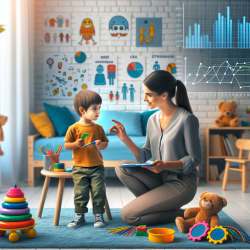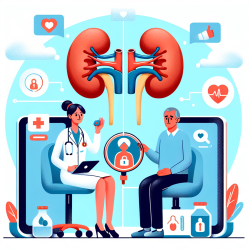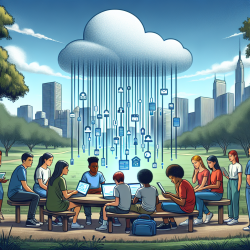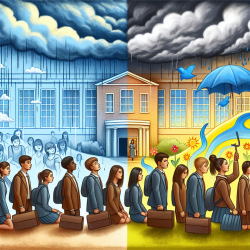Introduction
The recent study titled "Socio-ecological Resilience Relates to Lower Internalizing Symptoms among Adolescents during the Strictest Period of COVID-19 Lockdown in Perú" offers valuable insights for practitioners aiming to enhance child outcomes through online therapy. This research underscores the importance of socio-ecological resilience in mitigating anxiety and depression symptoms among adolescents during stressful periods, such as the COVID-19 lockdown. By understanding and implementing the findings from this study, practitioners can improve their therapeutic approaches and foster better mental health outcomes for children.
Understanding Socio-Ecological Resilience
Socio-ecological resilience is a concept that encompasses the culturally relevant personal and caregiver resources that adolescents can utilize to adapt to stressful situations. This framework shifts the focus from individual traits to systemic processes, emphasizing the importance of navigating and negotiating for resources within one's environment. The study highlights three key components of resilience: personal, caregiver, and overall resilience.
Key Findings
The study followed 1,334 adolescents in Perú during a critical five-week period of intense COVID-19 lockdown. The findings revealed that adolescents with higher levels of personal, caregiver, and overall resilience reported lower levels of anxiety and depressive symptoms. Notably, resilience moderated the change in anxiety symptoms from week six to week eleven of the lockdown.
- Adolescents with higher resilience had lower anxiety and depression levels.
- Resilience moderated anxiety symptoms, but not depressive symptoms, over time.
- Caregiver resilience played a crucial role in protecting against adverse mental health outcomes.
Implications for Practitioners
For practitioners providing online therapy services, such as those at TinyEYE, these findings offer actionable insights:
- Focus on Resilience Building: Incorporate resilience-building strategies into therapy sessions. Emphasize the development of personal and caregiver resilience to help adolescents navigate stressors effectively.
- Engage Caregivers: Encourage caregiver involvement in therapy. Highlight the importance of a supportive caregiver relationship in mitigating anxiety and depression.
- Customize Interventions: Tailor interventions to the individual needs of adolescents, considering their socio-ecological context and available resources.
Encouraging Further Research
While this study provides valuable insights, it also opens avenues for further research. Practitioners are encouraged to explore the following:
- Investigate the long-term effects of socio-ecological resilience on mental health outcomes.
- Examine the role of digital platforms in enhancing resilience-building efforts.
- Explore cultural variations in resilience and their impact on therapy outcomes.
Conclusion
By integrating the principles of socio-ecological resilience into online therapy, practitioners can enhance their effectiveness in supporting adolescents during challenging times. This approach not only addresses immediate mental health concerns but also equips young individuals with the tools to thrive in the face of adversity.
To read the original research paper, please follow this link: Socio-ecological Resilience Relates to Lower Internalizing Symptoms among Adolescents during the Strictest Period of COVID-19 Lockdown in Perú.










